Meet Your 2020 Sportsperson of the Year Winners: Laurent Duvernay-Tardif
Just thinking about Laurent Duvernay-Tardif and his immense sacrifice to opt out of the 2020 NFL season to work on the front lines of a pandemic makes me tear up.
He went into football because he has a passion for the game, because he’s talented, and he works hard, as evidenced by the Super Bowl he won last February. To choose to go back to the front lines, because he’s a doctor, and he wants to help people, even if that’s performing tasks like changing diapers and dispensing medications at a long-term care facility just outside of Montreal, it shows how much he cares. It shows that he’s not only a caring doctor but above all a good person and the perfect choice for Sportsperson of the Year in turbulent 2020.
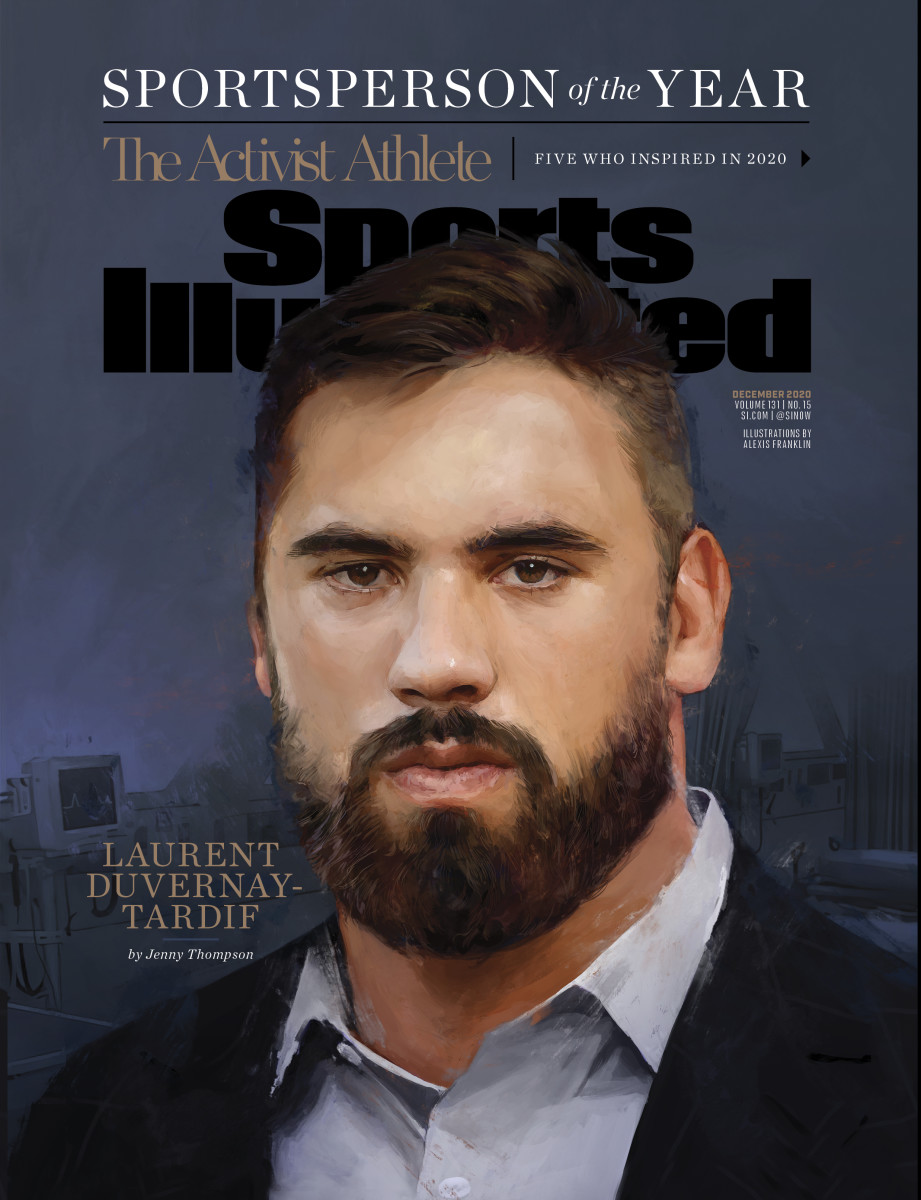
As one of few Canadians to win an NFL title, a key protector of MVP QB Patrick Mahomes and the starting right guard on a burgeoning dynasty in Kansas City, Laurent was already a sports hero. But it’s like he could see that now, more than ever, our society needs medical heroes, and it doesn’t matter whether you’re the one making decisions in the intensive care unit, or you’re giving orderlies and nurses a much-needed break. He’s more of a hero now than he ever would be on the field.
I hope that fans can appreciate his choices, even applaud them, and support whatever he and every other medical professional in society is doing right now, as we fight the relentless spread of COVID-19. This should not be about criticizing the efforts to social distance, or denying the need to wear masks and take the virus seriously. This is about stopping a deadly disease that has now claimed the lives of more than 250,000 Americans and shows no signs of slowing down.
Despite being the rare human to exist in the same Venn diagram as Laurent—as both a doctor and an elite athlete who won 12 medals, eight gold, while competing in the 1992, ’96, 2000 and ’04 Olympic Games—I had not heard of the football player/doctor until recently. I don’t really follow the NFL. I didn’t know that, after being drafted by the Chiefs in 2014, he balanced his football career with studying at McGill University’s medical school, graduating during the 2018 offseason. But on a baseline level I can understand and empathize with the choices he had to make and the duality of his existence.
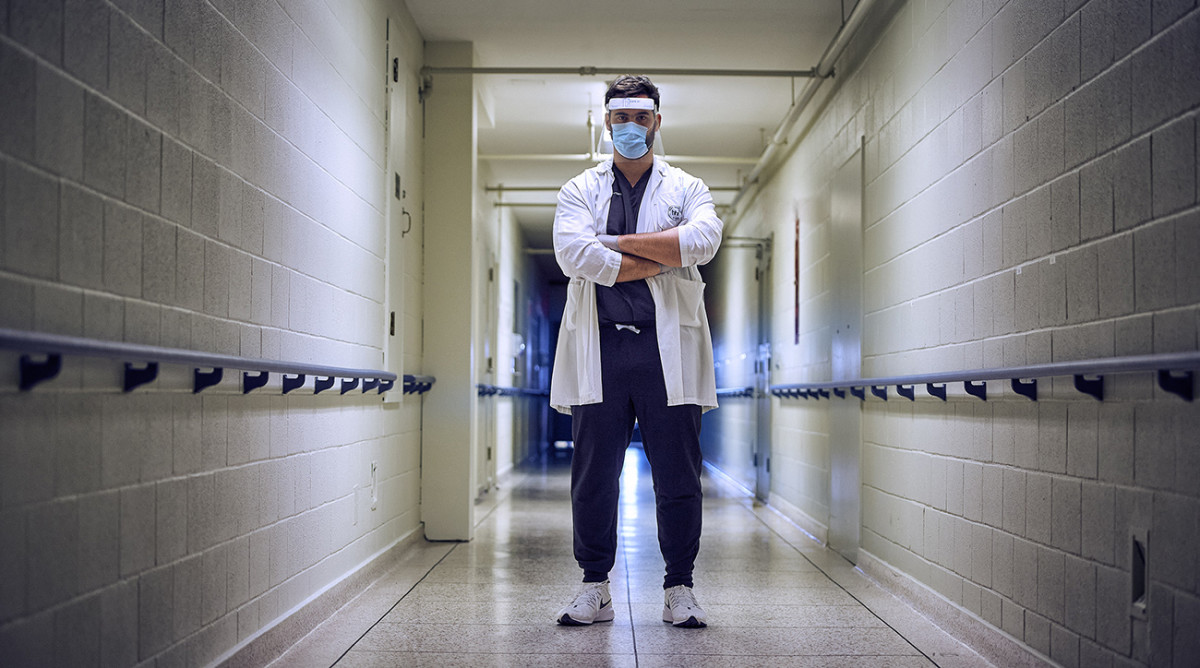
When I heard about him, I felt a bit of camaraderie, even though we’ve never met. Back when I was still training for the Olympics, I went to medical school at Columbia. And I came to understand the tricky balance of competing at the highest level in sports while also studying toward a medical degree. I believe we look at those scales in a similar way, in that I am a better doctor and a better swimmer because I desired to do both, because I didn’t pick one over the other, because I sought that exact balance in my life.
I had applied to medical school in 1999, while training for the 2000 Olympics, knowing I would ultimately defer my enrollment to attempt a third Olympics. After those Games, I retired from swimming. My late mom, Margrid Thompson, was diagnosed with esophageal cancer, and I moved to New Hampshire to help take care of her, knowing I would start medical school in August 2001. Just after I moved to New York City to attend Columbia, 9/11 happened. Like Laurent, I can identify with training in medicine amid a major public crisis having just reached athletic glory a short time before. I did a lot of soul searching that year, with my mom and school and the incredible response to a horrible tragedy. In many ways, that year affirmed for me why I chose healing as a profession in the first place. I imagine Laurent feels similarly, too.
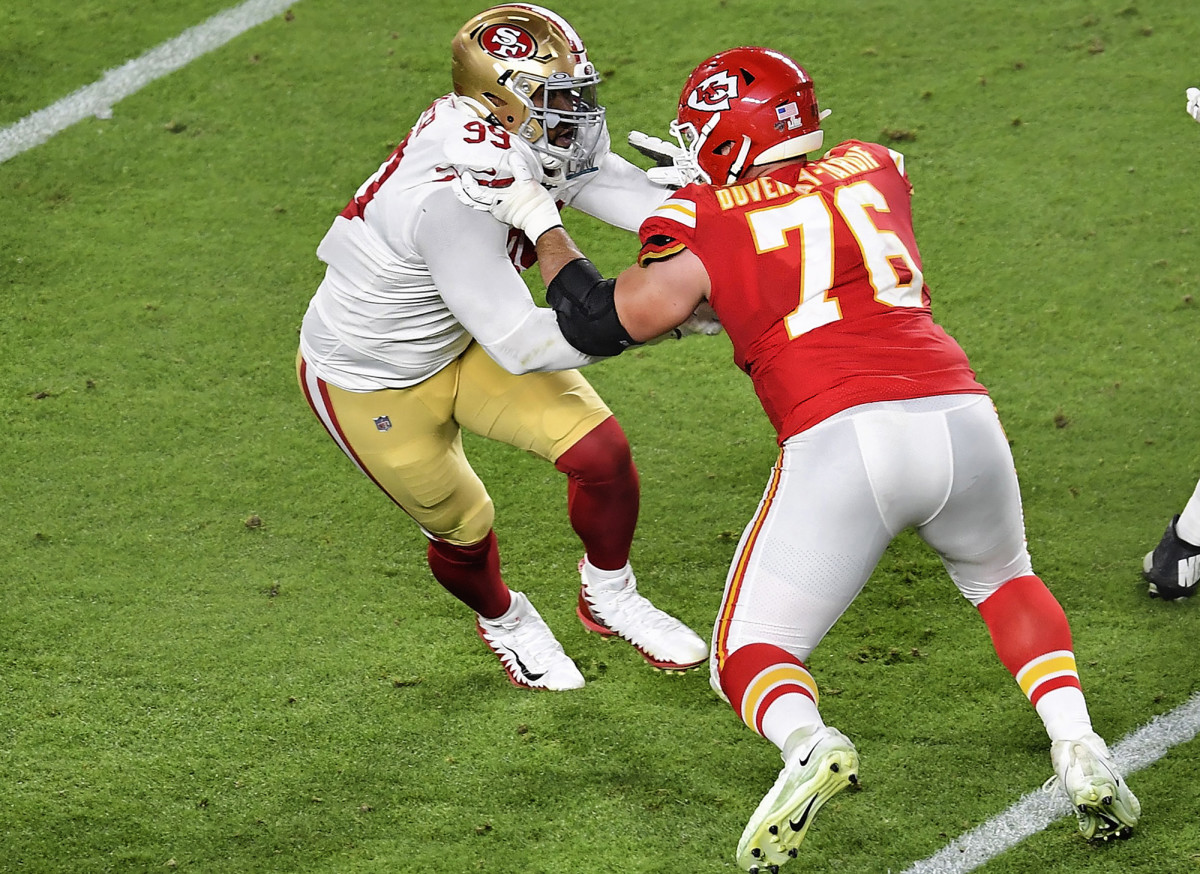
I ended up swimming again for my mental health around that time. Finishing lap after lap after lap became therapeutic for me, like a release, a way to relax. I started practicing with my coach every day, then began to compete in meets for fun. Eventually, I qualified for nationals, and because my mom always enjoyed my swimming, I kept going, which is how I ended up back in the world championships and a fourth Olympic Games. I hope that Laurent can reach the highest levels of his sport again, too. I can tell him this: It will mean more after all he’s lived through, after the indelible impact that he has made. It will be more fun.
I know his life now, the stress and fulfillment and demands. There’s a lot of work involved, a ton of hours. It is difficult to go from being the best in the world at something to entering a new, in some ways more difficult, arena and not be an expert anymore. For me, as a new medical student, I found myself at the bottom of the barrel, just starting out, grunt work aplenty at hand. It’s an interesting transition, but one that reminded me to be humble, that taught me what’s at stake. I admire that Laurent was willing to make that same transition—and not only in general but in the middle of the pandemic, when there are so many layers to staying safe.
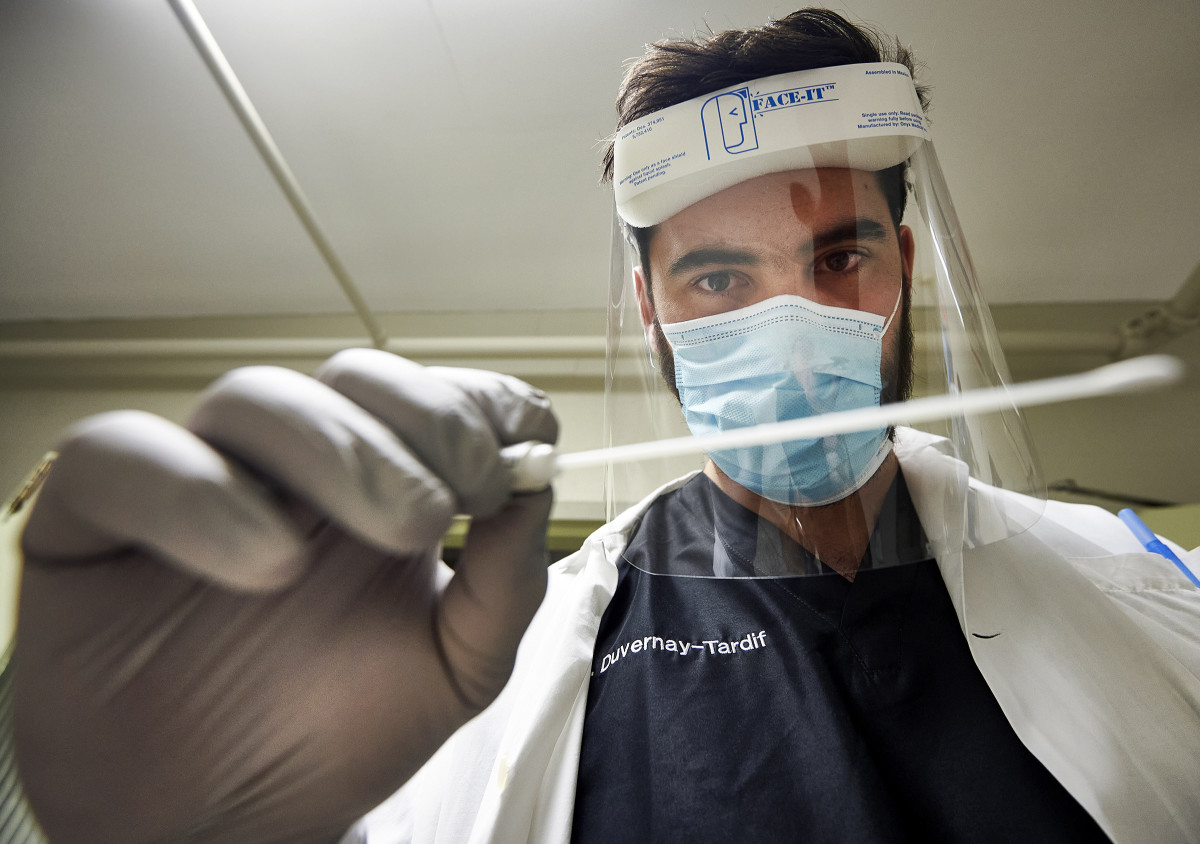
I now work at the VA hospital in Charleston, S.C., as a physician anesthesiologist. Most of my day is focused on managing the care of patients getting invasive procedures or surgery. Every day I feel gratitude toward them, knowing that these people served our country, and I can help them get through their illnesses. These people have lived through a lot. Some have gone to war, but many suffer immensely. On a daily basis, I am reminded why I became a doctor. This work is more gratifying than winning any medal, or standing on any podium.
Fortunately, we haven’t had many positive COVID-19 cases, but that could change quickly, at any time. That’s the way the virus works and why we must remain vigilant to stop its spread. I agree with Laurent and top medical officials throughout the world: It’s important to continue to abide by the CDC guidelines. Maintain the six-foot distance. Wear a mask (over your mouth AND nose). Wash your hands. Listen to public health officials.
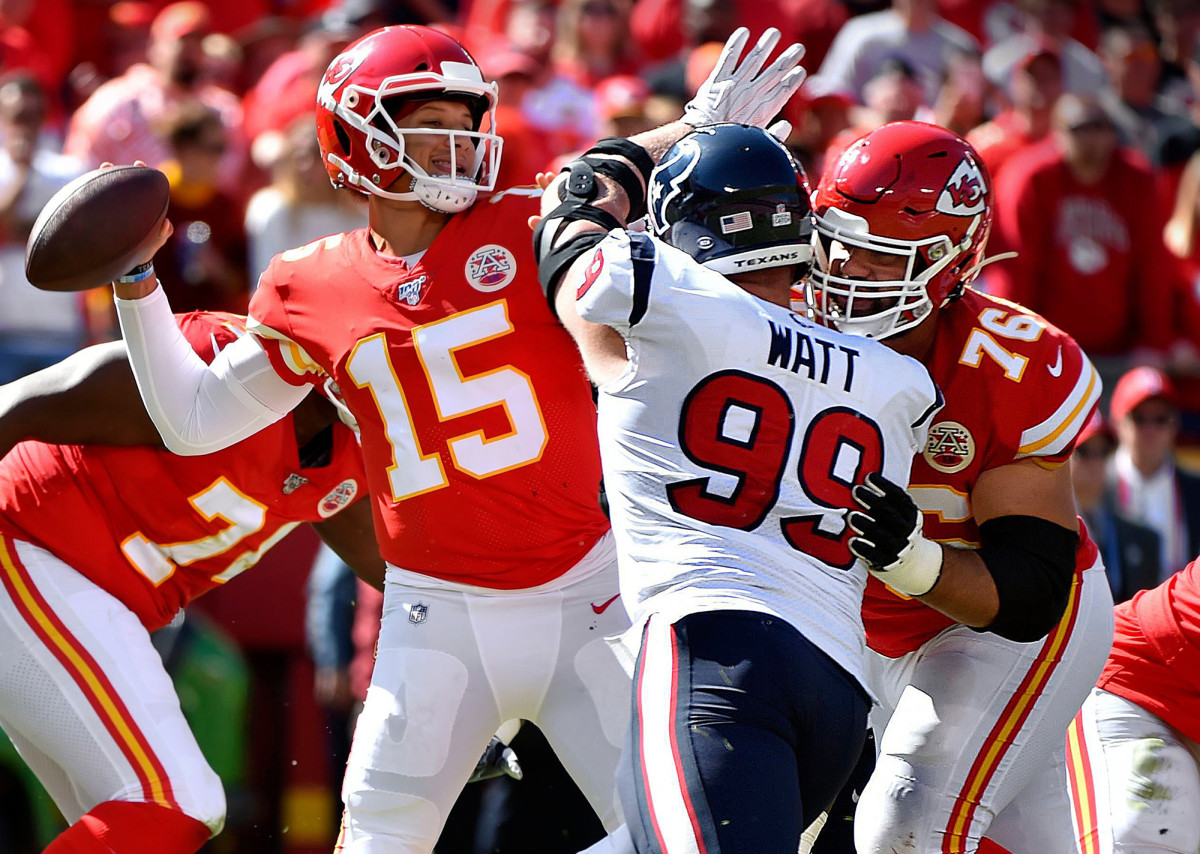
I have no issue with sports returning, with the NFL season moving forward, as long as COVID-19 precautions are taken. Certain things are helpful in maintaining sanity and our economy. I still swim for fun, as part of an adult team. I need the pool, just like fans need their football, or basketball, or whatever diversion they might choose. Even at the hospital, where we try not to discuss divisive topics like religion or politics, sports are something safe that we can play on the TVs. Sports bring people together. We need that now, more than ever.
We also need more people like Laurent. Most who go into medicine do so because they love science, sure, but also because they love people and humanity, because they want to make a difference in the world. Clearly, that is coming through for him right now, as he forgoes the glory inherent in defending a Super Bowl title to help his fellow humans, to wade back onto the front lines and fight COVID-19 at that long-term care facility in Quebec, while also studying public health at Harvard. His choice was difficult but admirable, in the most staggering way, and he should be celebrated not for his accomplishments on the field but for the choice he made in 2020 to leave the gridiron for something more important. Well done, doctor.
